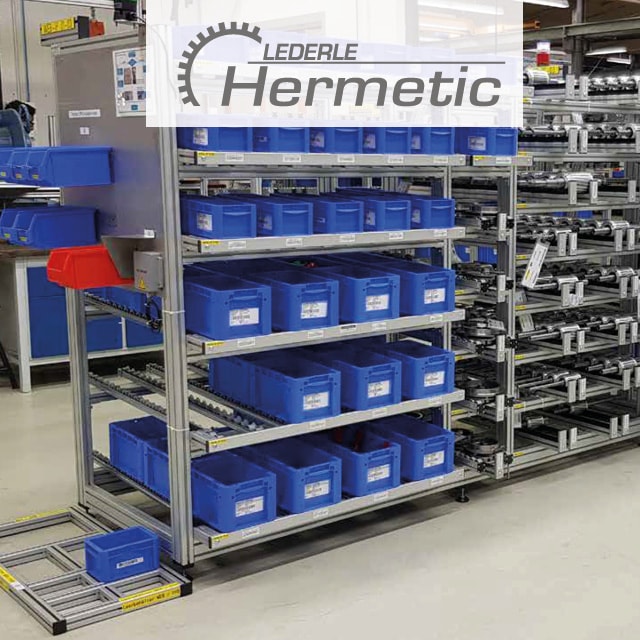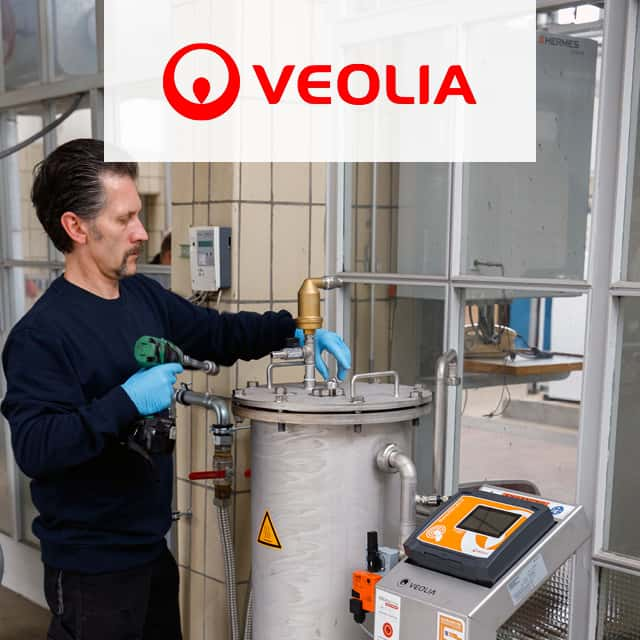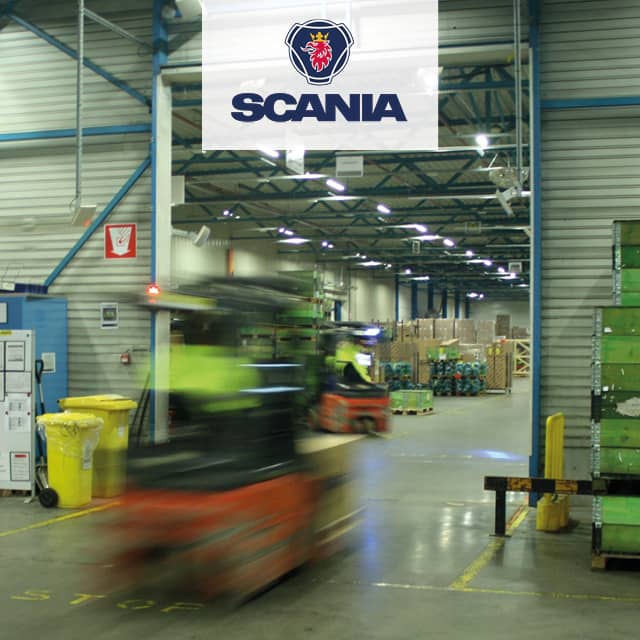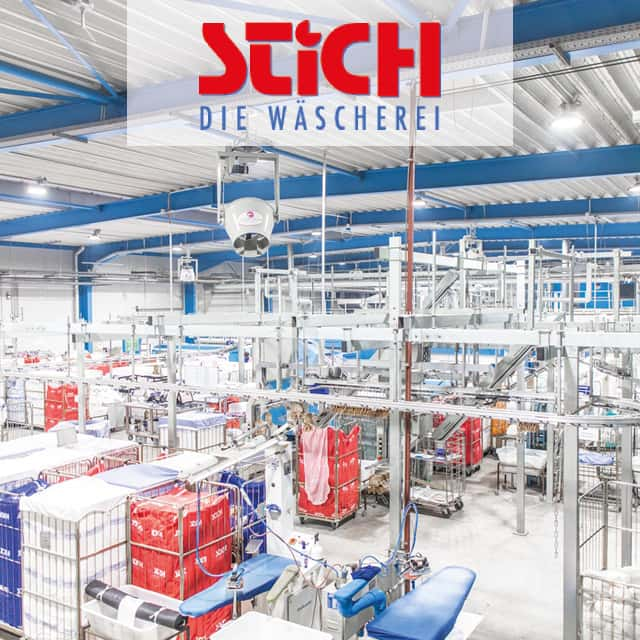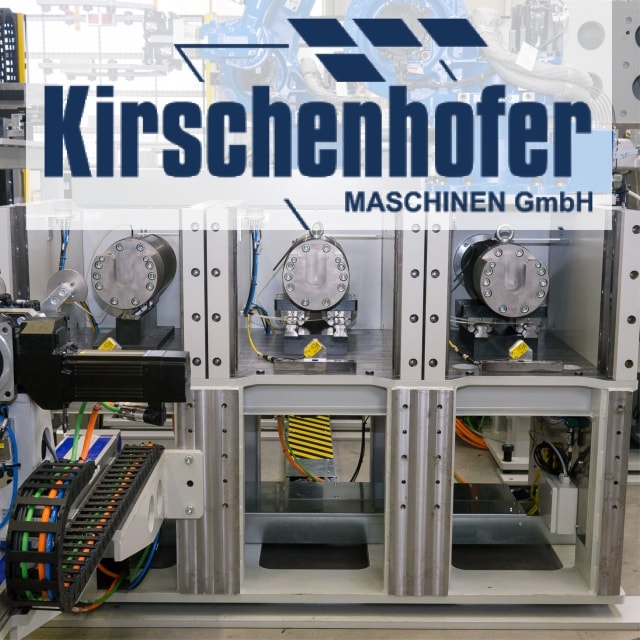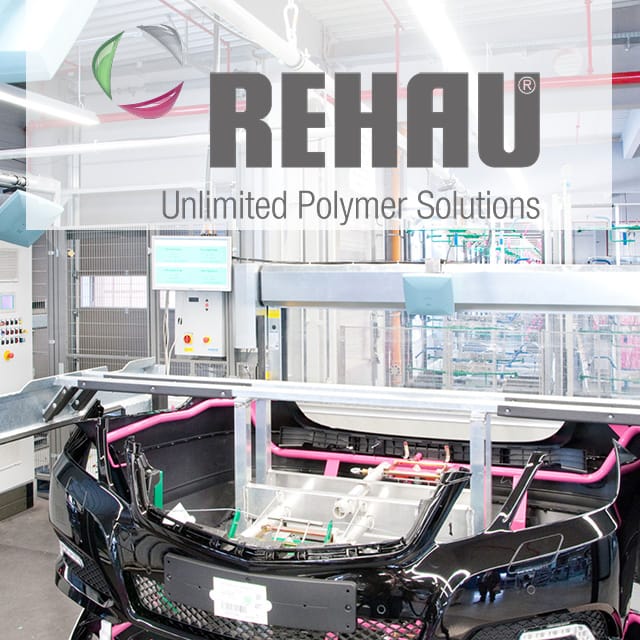
RFID Documents Automotive Component Production
The company Rehau produces supplier parts for automobile production in five different categories: Exterior-Systems, Bumper-Systems, Sealing-Systems, Air-Systems, and Water-Systems.
Increasing lot-size-one-production and just-in-sequence customer requirements demand new solutions to ensure the necessary process transparency.
Every single process step in the production of bumpers, swellers and rear spoilers for well-known automotive OEMs such as Porsche, Volkswagen, Daimler, PSA or Audi is now digitally traceable based on RFID.
With around 20,000 employees at 170 locations worldwide, Rehau develops polymer-based solutions in the construction, automotive and industrial sectors. Approximately 5,000 employees are involved in the development and production of automotive components.
Process requirements
Rehau produces parts that require documentation, for which complete proof of when and how they were manufactured must be provided either for legal reasons or at the request of customers. Documentation that each individual part has been assembled correctly and according to specifications must be kept for 15 years. A further requirement is the increasing variety of bumpers, sills and rear spoilers and the resulting production in batch sizes of one.
The overall goal of digital transformation in production was to achieve the highest possible transparency and traceability of each process step at the individual part level. Production delays and quality fluctuations were to be reduced.
Solution
An applicator automatically marks each component with a UHF RFID label using the tamp-blow method with an air blast. This form of application protects the product surface. From this moment on, the path of the component through all subsequent production steps is fully traceable.
The ID of the RFID label of each component is linked to the individual customer order so that the planned final state is secured at each assembly station. After identification, the employee is informed in detail which work step is to be carried out. All data from the production cycle of a part - until it is dispatched to the customer - is automatically stored and documented.
With big data analysis tools, Rehau ensures that all machining parameters adhere to a defined corridor. Within this corridor, for example, they may fluctuate in the hundredth or thousandth of a millimetre range. Outliers must be detected immediately. If such a case occurs, the recorded data is used for evaluation and possible problems are remedied at short notice.
To minimize the risk of losing data on individual parts if the label is damaged, only an identification number is written into the chip and printed in plain text on the label. The central data storage ensures that manipulations of the information on the label would have no effect on the entire system.
The databases are clustered and equipped with numerous protection systems to ensure the highest possible reliability. Only applications developed by Rehau or qualified and secured by Rehau are allowed to write information into the databases. Access is via strict authorization control. All databases are redundantly designed and secured by the Rehau IT security department.
The "RFID CV" software developed by Rehau in cooperation with external partners has a modular structure and can be flexibly extended. All new machines or new parameters can be docked. The software is developed as API, in order to ensure the continuous extension of the platform lastingly.
Technology Partner
- Kathrein Solutions
- Siemens
Advantages
- Complete documentation of each process step at individual part level
- Continual improvement through transparent data collection
- minimize production delays and ensure JIS requirements on the customer side
- Managing an increasing number of variants
- Adherence to legal or customer regulations on data retention
Learn More
Questions? Get in contact with the editorial team!
Technologies
Application Fields









